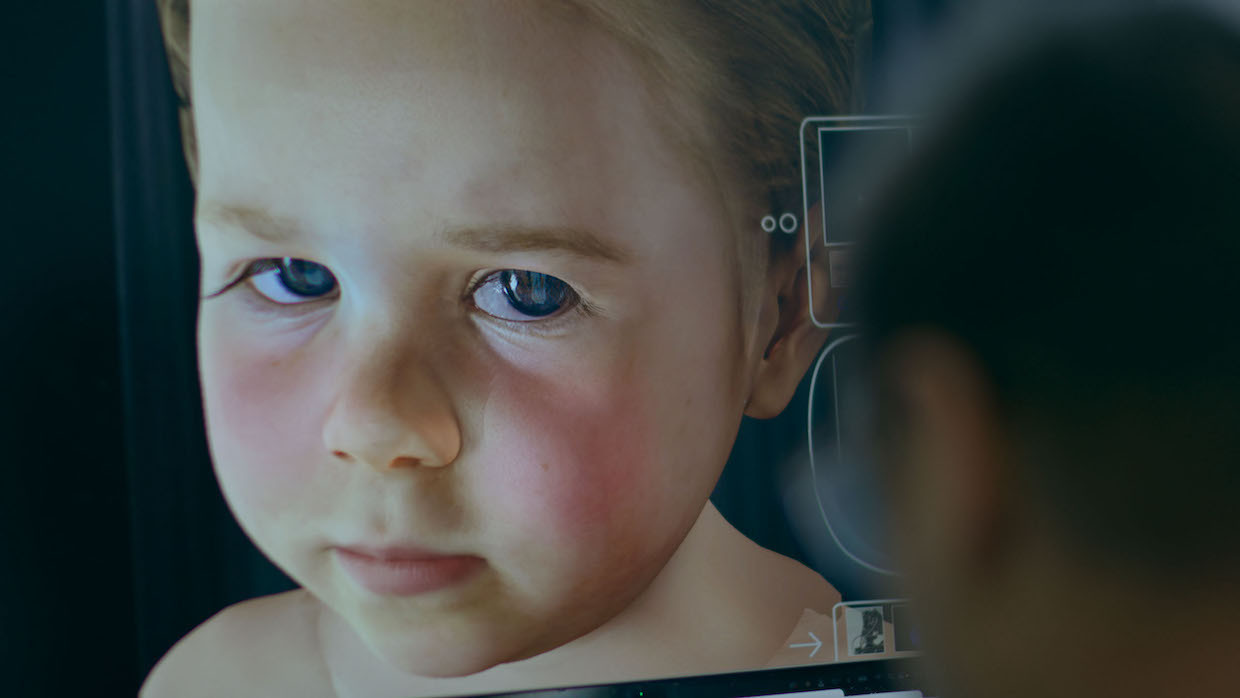 Back to selection
Back to selection
“The Gravestones Appear Almost Like Signs” | Hans Block and Moritz Riesewieck, Eternal You
 Eternal You, courtesy of Sundance Institute
Eternal You, courtesy of Sundance Institute Films are made of and from places: the locations they are filmed in, the settings they are meant to evoke, the geographies where they are imagined and worked on. What place tells its own story about your film, whether a particularly challenging location that required production ingenuity or a map reference that inspired you personally, politically or creatively?
For our film we were interested in contrasting the world of digital afterlife with traditional forms of remembrance and commemoration. There is one scene in which the camera floats at some height, almost vertically above the graves of a large cemetery in western U.S.A. The gravestones appear almost like signs. It looks as if the camera is scanning them, like a code that is being read. It is often said that the digital realm reduces us to data. But if you look at cemeteries, which have been used for centuries for remembrance and commemoration, you notice how standardized many of the graves are. What remains of the dead is often just a formatted grave with a formatted tombstone, numbers and letters, while digital afterlife services give people the opportunity to preserve the individual—personal and intimate aspects that they associate with the deceased. The shot in our film makes visible how the individual deceased are absorbed into the community of the dead. While this might seem merciless, there is also something peaceful about that. In German, there is the word Aufhebung, made famous by Hegel. In German, Aufheben has the double meaning of dissolving and being preserved: If we are to continue to exist as virtual individuals, there might be no being lifted up in the community of the dead, and therefore no redemption. As artists and filmmakers we are interested in the dialectic of wanting to keep the dead alive: What do we take away from the dead when we seemingly try to keep them alive?
